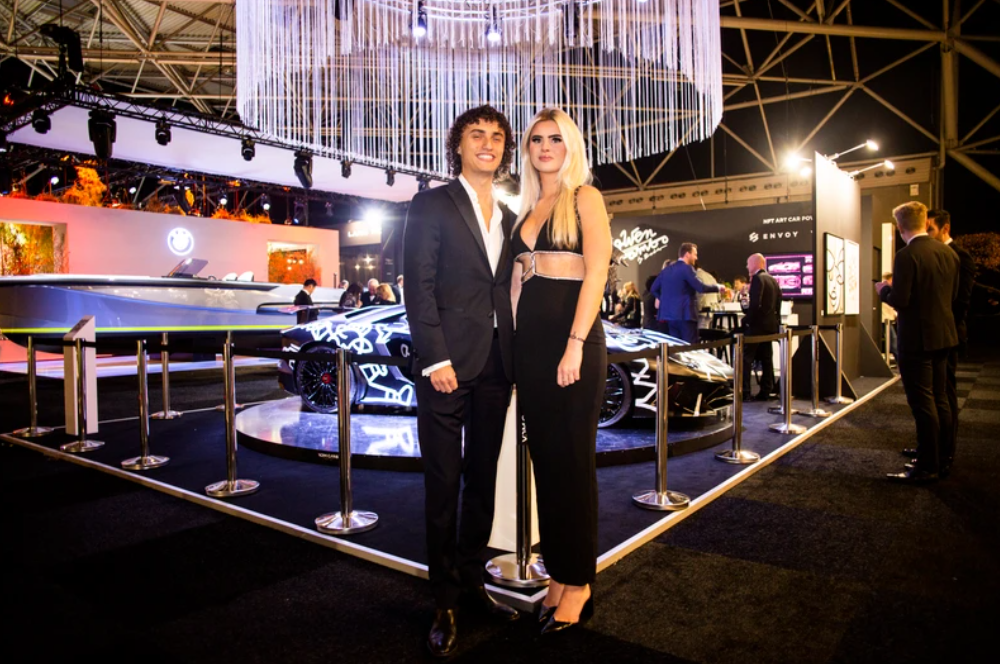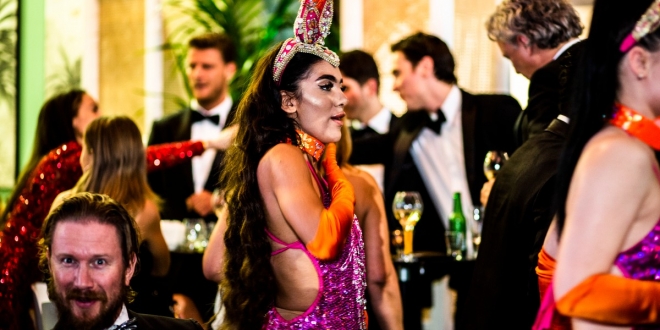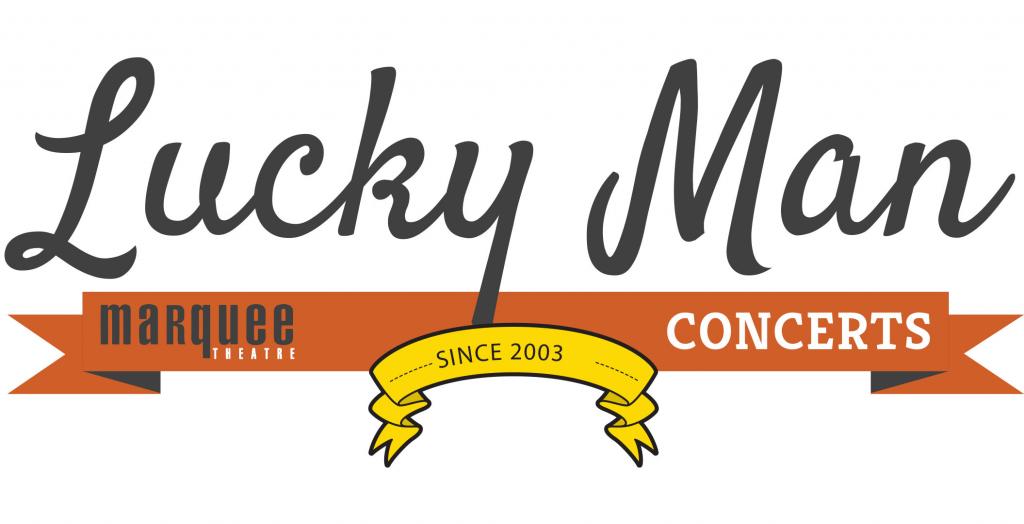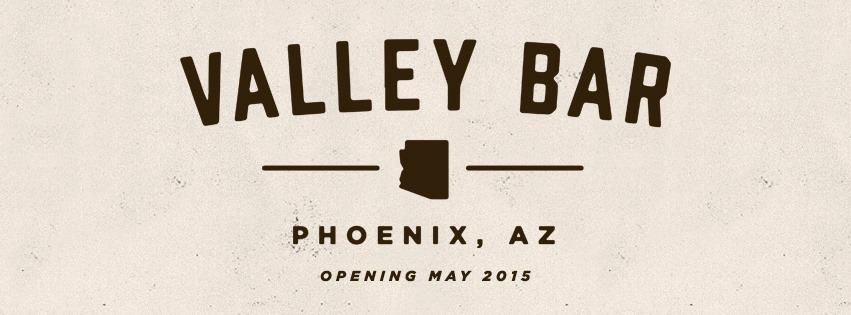In November, the Netherlands was left reeling from an evening of anti-government unrest in Rotterdam. Some, however, were escaping the misery of the common people by heading to a luxury lifestyle event for the phenomenally wealthy. The organisers of the Masters Expo – formerly known as Masters of LXRY and before that the Millionaire Fair – blessed the 19th installment of the annual event with a Roaring Twenties theme. I spent the afternoon there to check in on how the super-rich are getting on during these immensely troubling times.
For a while in 2020, there seemed to be a belief in the air that, just like society did after the First World War and the Spanish Flu, we’d bounce back from the pandemic and enter an era of sex and spending. It doesn’t feel like that party has started for most of us just yet.

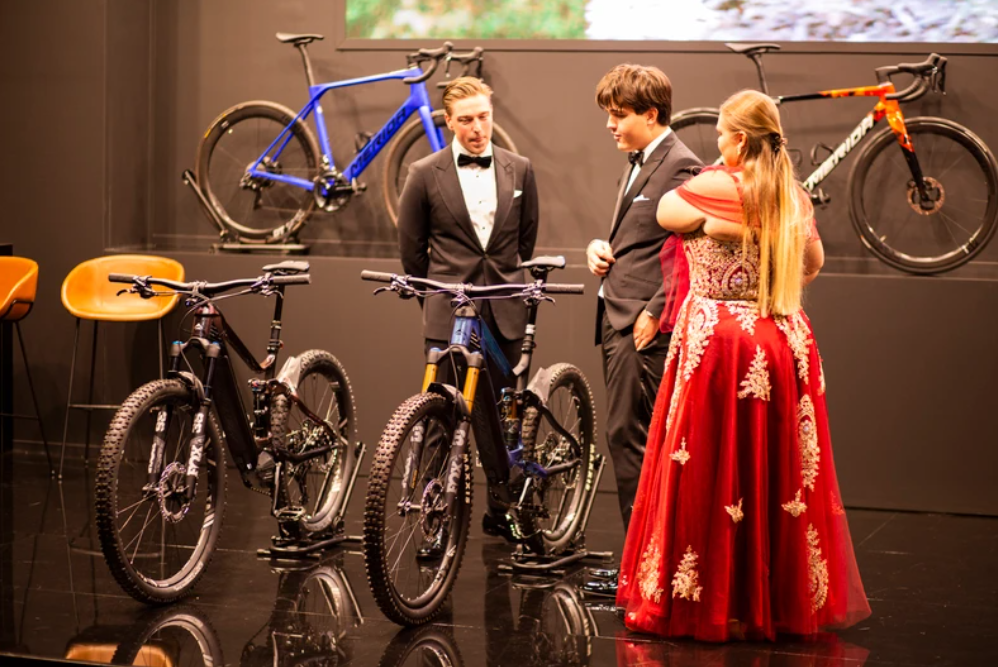
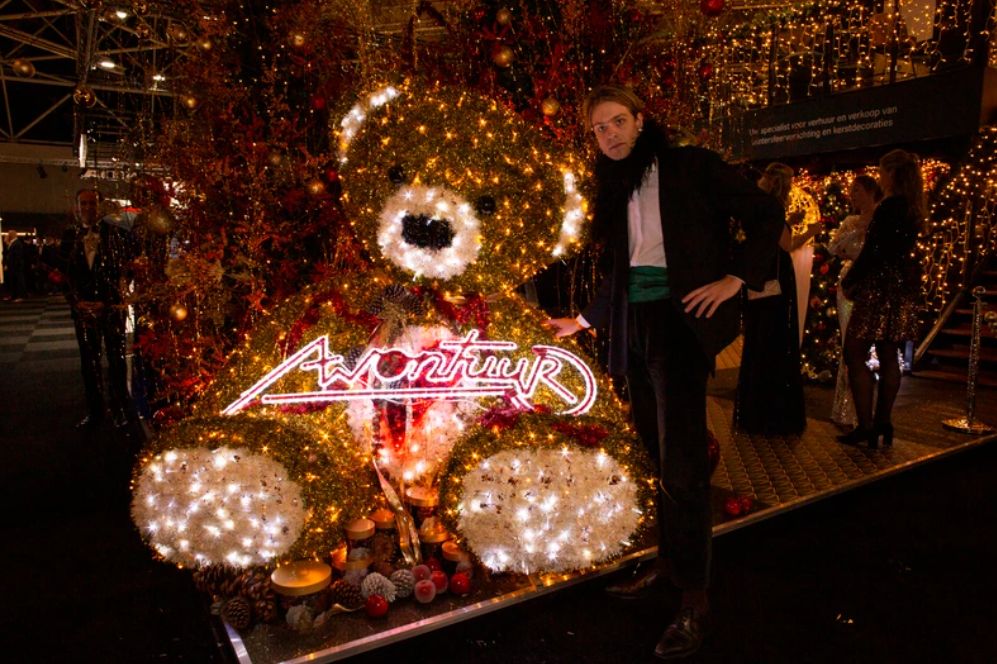
The event takes place at the RAI Amsterdam Convention Centre (RAI stands for Rijwiel en Automobiel Industrie, the country’s official bicycle and automobile body), an exhibition hall that’s existed in the city in some form or another since 1900. The crowd outside today isn’t exactly sold on the venue. “It doesn’t look at all impressive,” a high-heeled young woman says to her friend. “It’s just an expo,” the friend replies.
Nothing on the outside hints at the lavishness that must be waiting on the other side of the doors. The event’s billboards, which look a bit like an advert for Peaky Blinders or a bad Netflix film about the Great Prohibition, aren’t exactly showing limitless luxury, either.
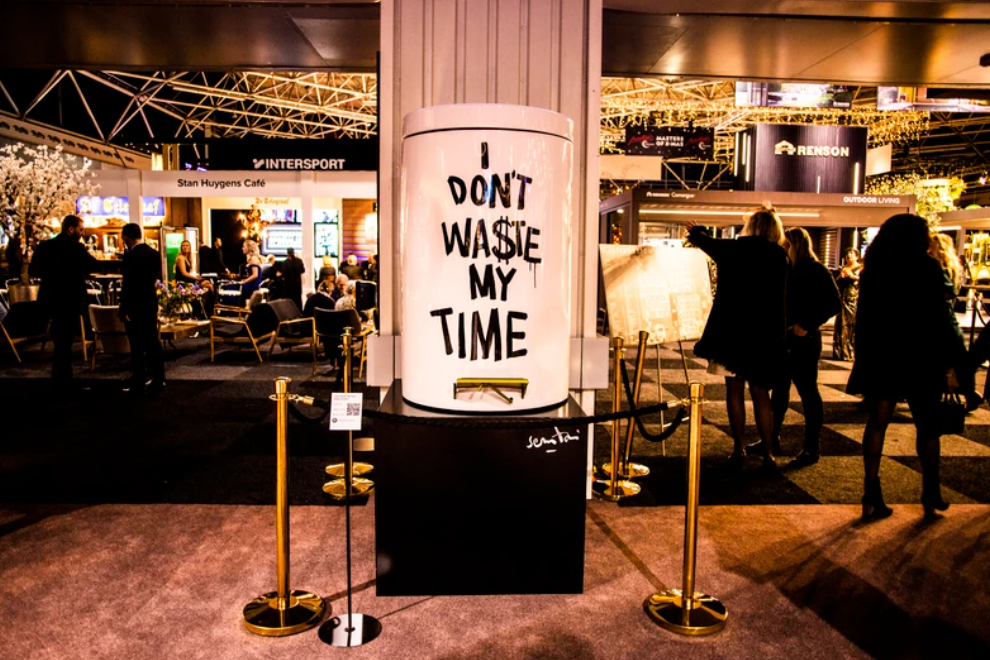
Head inside and there are cars, diamonds and yachts, all bathing in the glamorous glow of bright overhead lights – luxury at its most obvious. Looking around the exhibition space, it seems that the marketing campaign isn’t the only subdued thing about the exhibition. Even the advertised mocked-up luxury apartments are based in a sleepy suburb of Amsterdam itself, suggesting that in the Netherlands at least, not even the high-rollers can afford to put down a deposit on a city-centre living space.
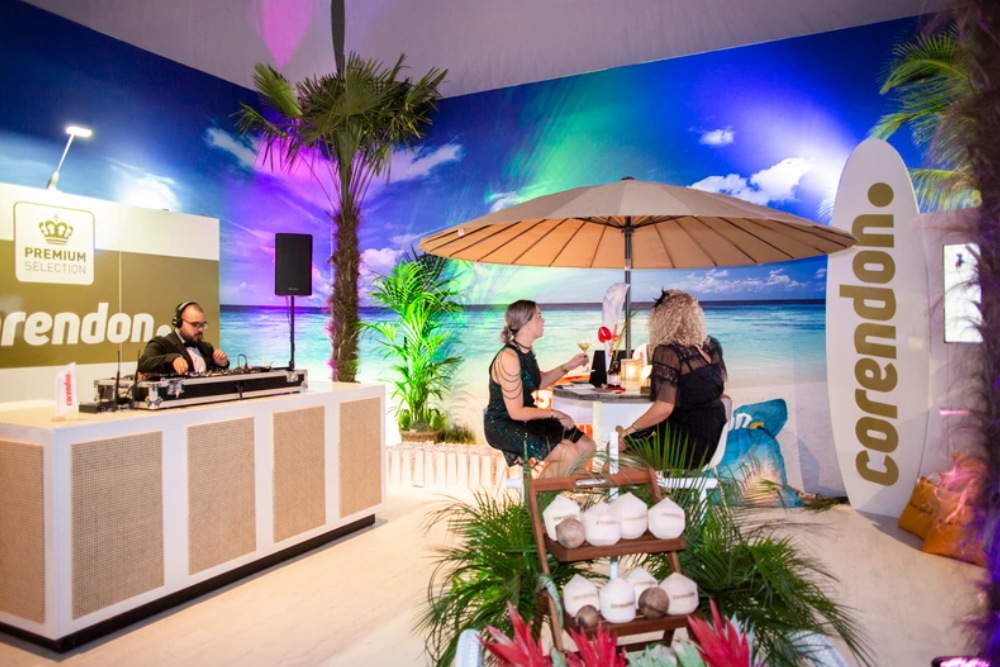
The sinking of the Titanic was fresh on the minds of the well-heeled in the 1920s. A century on, cruise ships are still a crucial part of the luxury market. For just €33,000, you too can board five-star vessel Le Commandant Charcot for a two-week trip to the North Pole. I spoke to Stephen, a well-travelled American employee who works for the company that sells these trips. He’d actually visited the North Pole in the name of research and saw eight polar bears. “I thought I’d get bored,” he said. “But it didn’t happen. When we crossed the 90th meridian west, champagne bottles popped and parties ensued.”
For Stephen, clambering aboard a floating palace to peer at polar bears isn’t mindless escapism or an ostentatious display of wealth. Oh no: This is climate activism. “We take sustainability to a new level,” he tells me, pointing out that the vessel is a climate-friendly travel option, that scientists are welcome to join the cruise without paying a penny, and that holidaymakers can settle down for regular lectures about global warming. If he’s to believed, travelling to the North Pole can even combat climate change. “Once the passengers see how beautiful and vulnerable the area is, they’ll want to protect it,” he told me.
Interestingly, the opposite seems to have happened for him. “Of course, historically speaking the amount of ice decreases, but there’s still new ice being added every year. While on the cruise, we spent days breaking through the ice. There was ice everywhere!” While sea ice is indeed increasing in Antarctica, glaciers and ice shelves are all melting rapidly, producing large volumes of fresh water. According to World Wild Life (WWF), we actually lost 95 percent of Arctic ice in the last 30 years.
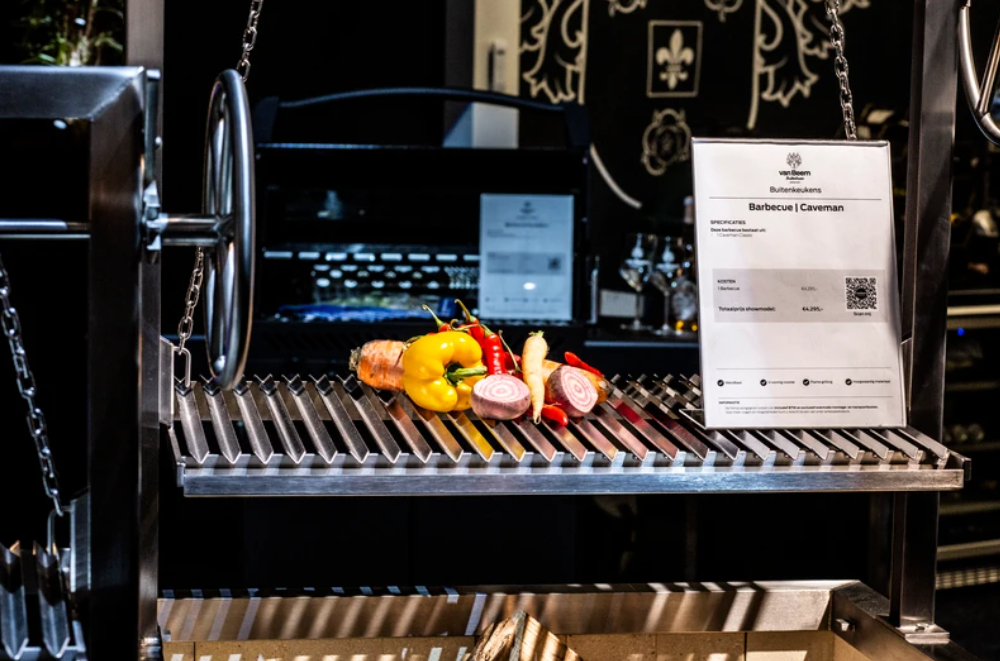
According to Rosanna, a glamorous business strategist who joins me at the bar for a glass of bubbly, climate change is 2021’s version of prohibition. “We need to think about what we’re going to do differently, invent new business models. We’re in the age of disruption,” she said.
In her free time, she helps young female entrepreneurs who have hit a professional wall, and talks to them from a place of personal experience. “My husband and I have a bed and breakfast in Modena, close to Bologna. A beautiful complex, a real paradise with a view of the hills. But when we wanted to open our doors, COVID-19 hit and we had no bookings. So we ended up staying there ourselves.” Times are tough for all of us, it seems.

Things are slightly cheerier at the bar, which is sponsored by Icoinic, a cryptocurrency start-up that’s hoping to cross over into the conventional finance realm. I chat with its CEO Egbert Krop over a drink. Talk turns to hyperinflation in 1920s Weimar Republic, which resulted in people having to take wheelbarrows of cash out with them when they did their grocery shopping. Krop reminds me that inflation doesn’t exist in the world of crypto. The stock price of the various currencies on the market might go up and down, but this “simple Dutchman”, as he describes himself, has faith in the long-term possibilities of all things cryptocurrency. As he should: Business is booming.
Krop goes on to tell that he’s “not very materialistic”, and that he’s only popped in to buy a few bottles of wine. This tallies with some of the other guests I spoke to. It seems that those who’ve made their fortune in the digital sphere aren’t as keen on physical possessions as their old money counterparts.
A Lamborghini decorated with art from artist Pablo Lücker is on display at the event. This half-a-million euro car is a free gift with the purchase of a digital art NFT by the same artist. Pablo is here to shake things up, he explains. “Many of the people here are a tad blasé.”
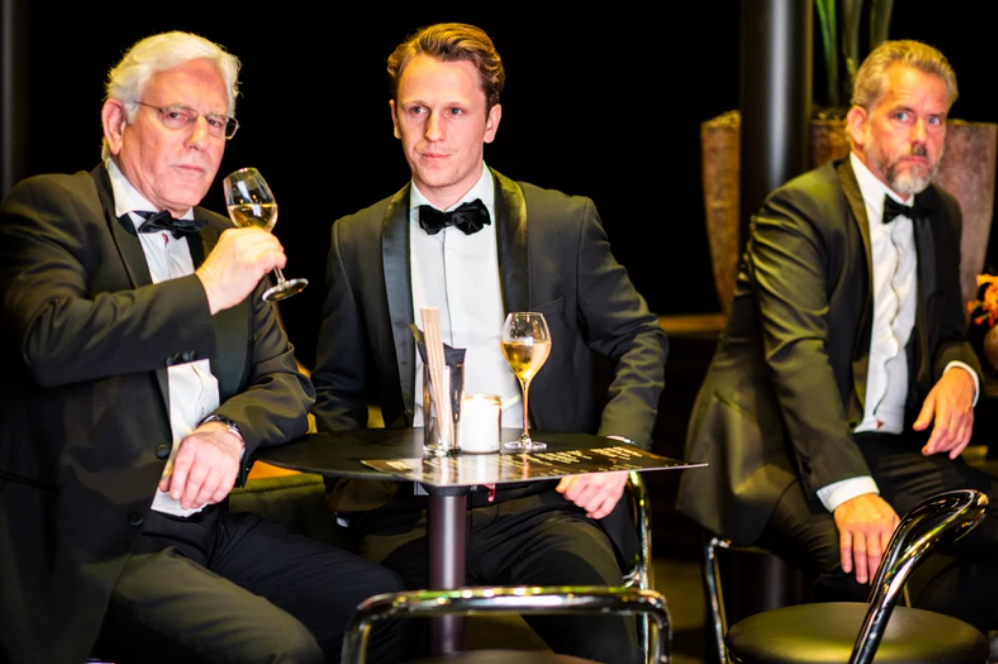
The person who exhibits the most disdain towards the material world at this entire exhibition is YouTuber Kwebbelkop, who is considering buying the NFT-Lamborghini combo. “Not for the Lamborghini, but for the NFT.” The car, he says, he’d just sell, “before I race my NFT down the digital highway.”
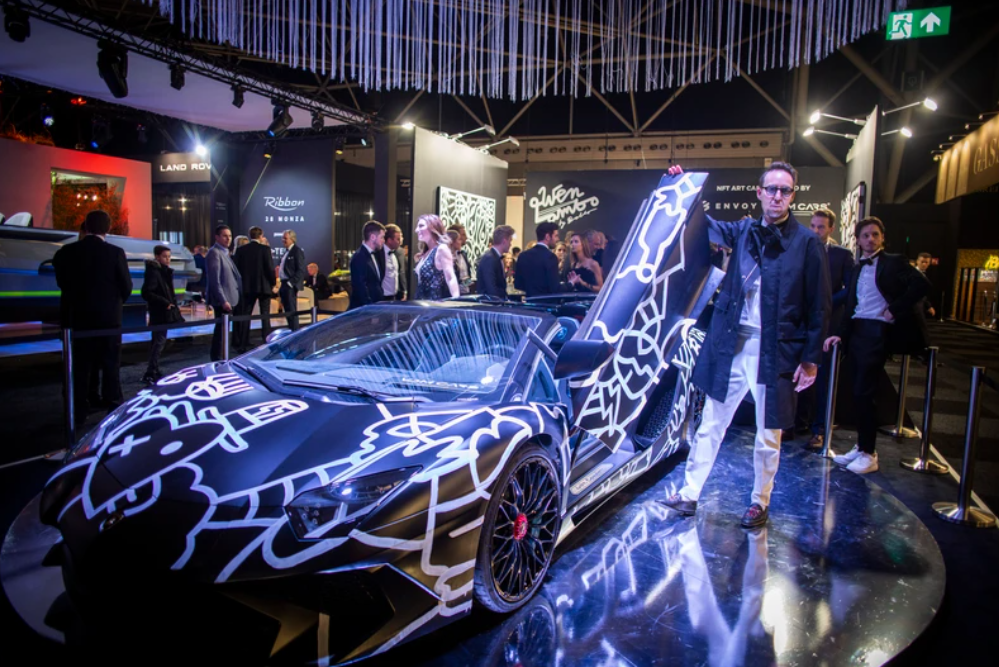
The party is over by 6PM. Even Masters Expo doesn’t escape having to comply with the government’s pandemic safety regulations. For now, the businesses and people turning a fat profit in these desperate times are more far interested in modesty and efficiency than in boundless hedonism. These days, a resurgence of the roaring 20s seems more like a wish and less like a reality.
